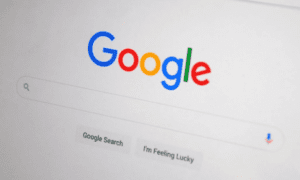Will Google Kill ChatGPT?
As the debate on whether Google will crush ChatGPT continues, we’ve gathered nine insightful perspectives from CEOs and a Chief R&D Officer. From exploring the adaptability that fosters a symbiotic relationship between ChatGPT and Google to discussing Google’s control and OpenAI’s bypass efforts, this article provides a comprehensive analysis of the potential AI showdown.
- Adaptability Fosters ChatGPT and Google Symbiosis
- Distinct Capabilities Separate Google and ChatGPT
- Google’s Potential Trend Leadership Over ChatGPT
- ChatGPT’s Unique Strengths in Conversational AI
- Distinct Functions of Google SGE and ChatGPT
- Coexistence and Innovation in AI Landscape
- Quality Content: Key in AI and Human Writing
- Uncertainty in Google and ChatGPT’s AI Showdown
- Google’s Control and OpenAI’s Bypass Efforts
Adaptability Fosters ChatGPT and Google Symbiosis
Google and ChatGPT occupy diverse segments, making their interaction layered and multifaceted. The extensive experience in SEO, stemming from the early days of doorways and cloaking to the current white-hat era, underscores the importance of adaptability. Ephemeral black-hat methods and the rise of strategic, sustainable practices have been witnessed, paralleling ChatGPT’s journey.
SEOBRO.Agency was born from a need to translate SEO complexities into tangible ROI, mirroring the adaptability that fortifies ChatGPT against potential challenges from Google. Having navigated diverse companies through SEO evolution, ChatGPT’s adaptability is perceived as its shield, indicating a symbiotic rather than antagonistic future relationship.
In essence, the evolving landscape signals a cooperative dynamic, not a suppressive one.
Roman Borissov, CEO, SEOBRO.Agency
Distinct Capabilities Separate Google and ChatGPT
If we talk about competition between Google Bard and OpenAI Chat GPT, it’s important to note that their use cases are a bit different. Unlike their similarities, it’s not about one replacing the other. Both chatbots use NLP to generate a human-like response to users’ queries. They are trained on different LLMs that separate them into two categories.
Google Bard uses Google’s Pathways Language Model (PaLM 2) and operates real-time data from Google Search, which makes it a great research and analytical tool.
OpenAI’s ChatGPT uses a Generative Pre-training Transformer (GPT-3 or 4), with data sources up to September 2021. It has better creative capabilities and writing strengths, so it’s a cool text generator, digital assistant, content rewriter, or writing-from-scratch tool.
To sum up, Google AI is not considered a direct competitor of ChatGPT. However, the situation could change at any second and we have to keep our finger on the pulse.
Aleksey Pshenichniy, Chief R&D Officer, Elai.io
Google’s Potential Trend Leadership Over ChatGPT
Google crushing ChatGPT would be surprising. This greatly depends on your definition of “crushed.” If “crushed” means “Bard becomes more popular in time,” then sure, Google could conceivably do that. But, if “crush” in this context means “Google is going to penalize ChatGPT content, throttling its usage,” then no, it’s not likely to happen. Just one year ago, at Website Depot, the initial conversations about how to best incorporate ChatGPT and AI in general into work were just beginning. While that conversation continues, ways to use it that were not anticipated a year ago have been found: such as using it for outlining, for research, and so forth. Google has always shown, more or less, that they know how to stay ahead of trends. That is expected to continue when it comes to ChatGPT.
Danny Star, CEO, Website Depot
ChatGPT’s Unique Strengths in Conversational AI
ChatGPT has the potential to take the lead in this realm.
Having used both Google’s Bard and ChatGPT for the past six months, it’s clear that ChatGPT’s capabilities are more focused and refined. It serves as a unique blend of a search engine and a well-structured answer tool, a combination that even Google’s Bard has yet to perfect. The result is a more coherent, insightful interaction that meets user queries with precision and depth.
The idea that Google will crush ChatGPT is a misconception that overlooks the unique attributes and strengths of ChatGPT in the sphere of conversational AI. While Google is undeniably a tech giant with considerable resources, ChatGPT brings its own set of advantages that position it strongly in its niche market.
ChatGPT is laser-focused on natural language processing and conversational capabilities, offering a level of nuance and organic interaction that’s highly sought after.
Bhavik Sarkhedi, Brand Consultant and Content Marketer, BrainerHub
Distinct Functions of Google SGE and ChatGPT
Google’s search generative experience is unlikely to heavily impact ChatGPT’s usage levels. Both tools serve different purposes effectively. ChatGPT is often utilized as a content-generation tool, not merely a means to retrieve online information. It doesn’t have recent enough training to be as useful as Google SGE in this regard. Conversely, Google SGE won’t be used to generate copy, code, or other forms of content. It will simply answer questions using information from its index. Unlike Google SGE, the output from ChatGPT can be customized. Therefore, Google SGE and ChatGPT will continue to have distinct use cases.
Sofia Tyson, SEO Content Editor, Juro
Coexistence and Innovation in AI Landscape
Google is unlikely to crush ChatGPT. Despite Google’s powerful resources and expertise, ChatGPT represents a different approach to AI. It’s more about language understanding and generation, whereas Google’s focus may be on broader applications. There’s room for diverse AI solutions, and competition fosters innovation. As long as OpenAI continues to refine and adapt ChatGPT, it will likely remain a valuable player in the AI landscape, coexisting with Google and other tech giants. Collaboration and coexistence are more likely than a complete “crushing.”
Ranee Zhang, VP of Growth, Airgram
Quality Content: Key in AI and Human Writing
Google is unlikely to launch a crusade against any form of generative AI anytime soon. This is evidenced by the fact that Google has a generative AI tool of its own, called Google Bard.
A blog published on Google Search Central Blog on February 8, 2023, clearly states that the quality of the content is what matters the most, regardless of whether it’s created by AI or humans. Here’s the blog.
The challenge lies in how content creators can capitalize on generative AI tools while ensuring their content fulfills the E-A-T criterion outlined by Google as an important ranking factor.
Google perceives AI tools like ChatGPT as a means to power up the content quality. However, through frameworks like E-A-T, its algorithm also demands that the human experience factor isn’t completely forgone in the content.
Striking the right balance is the key.
Rahul Bohra, SEO Specialist, WrittenlyHub
Uncertainty in Google and ChatGPT’s AI Showdown
Google’s showdown with ChatGPT in a chess game didn’t provide a clear winner, and predicting a definitive outcome in future matches isn’t straightforward. While Google AI demonstrated moments of superior play, it also displayed moments of confusion and even claimed a draw erroneously.
The outcome of future games between Google AI and ChatGPT will depend on various factors, including improvements in their algorithms and training data. Both AI systems have the potential to excel in different aspects of the game. Google AI might leverage its computational power for deeper calculations, while ChatGPT could benefit from its understanding of human-like strategies.
With the potential for both sides to surprise us, the ultimate decider may be their capacity to adapt and learn from each encounter. So, will Google crush ChatGPT? The answer, shrouded in uncertainty, lies in the fascinating interplay of these AI giants on the chessboard.
Aryan Chauhan, Expertise of SEO, UpInFifty
Google’s Control and OpenAI’s Bypass Efforts
Consumer-facing generative AI is at the forefront of a war in Silicon Valley between the titans of Big Tech. By aligning with Microsoft, OpenAI has made ChatGPT a potential target of Google due to their competing AI technologies like Bard. There are other major players in the space like Amazon’s Alexa and Meta’s new Meta AI, but Google has a unique ace in the hole: it serves as gatekeeper to the global internet for billions of people.
That means Google can detect and penalize ChatGPT-generated content in its search index, significantly disincentivizing its use by publishers. While that wouldn’t cut into ChatGPT’s many other use cases, it could decimate one of the biggest.
That’s likely why OpenAI just announced that ChatGPT can now query the live internet rather than depending on information from 2021: they are creating a mechanism to bypass Google. But that feature costs money for users and is extremely computationally intense (expensive) for OpenAI. Google still has the upper hand.
Nick Gausling, Managing Director, Romy Group LLC
Related Questions



































